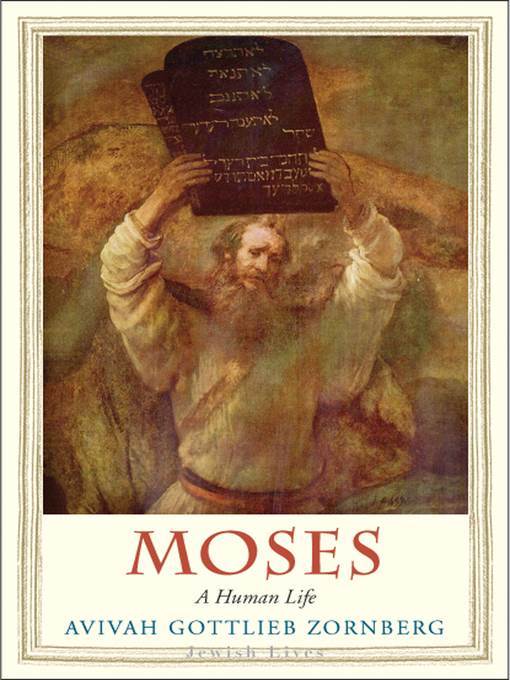
Moses
A Human Life
کتاب های مرتبط
- اطلاعات
- نقد و بررسی
- دیدگاه کاربران
نقد و بررسی

Starred review from October 10, 2016
In this slim volume, acclaimed scholar and lecturer Zornberg (Bewilderments: Reflections on the Book of Numbers) offers another richly textured and nuanced biblical study. Early on she sets an academic tone, writing of Moses that “he exists in a metonymic relation to the relation to the people who are, at first, both his and not his.” That kind of language will be a barrier to some, but those who persist will find Zornberg’s illuminating use of both midrash and literary sources, such as George Eliot’s Daniel Deronda and W.G. Sebald’s Austerlitz, worth the effort. She gives her commentary immediacy not usually found in similar titles by opening with an anecdote about her affecting experience during a rabbinical retreat, where she envisioned Moses pleading with God to allow him to enter the promised land. That blend of the personal and scholarly supports her ultimate argument about the biblical figure’s enduring significance: “Veiled and unveiled, he remains lodged in the Jewish imagination where in his uncompleted humanity he comes to represent the yet-unattained but attainable messianic future.” For those wishing to engage the legacy of Moses more deeply, this is a must-read.

Starred review from September 15, 2016
A unique examination of Moses.In her latest book, National Jewish Book Award winner Zornberg (Bewilderments: Reflections on the Book of Numbers, 2015, etc.) presents a rich, erudite study of Moses. This is a true readers' biography, drawing on a full range of commentators and writers, including the great ancient rabbis, more modern scholars and philosophers, and secular writers ranging from George Eliot to W.G. Sebald. The author seeks to find the human Moses behind the great biblical legend; this is not the same as seeking a "historical Moses" but instead, a discovery of the humanity behind the great leader of Israel. To do so, Zornberg painstakingly excavates seemingly familiar passages for hidden nuances and signs of Moses' own trials. She finds, among other things, a man of two cultures and two peoples yet comfortable in and accepted by neither. She finds a man lacking the confidence to address his people directly yet willing to make demands and complaints to God himself. She finds a man who encounters his people both veiled, and thus cryptic and unknowable, and also unveiled as a vulnerable leader. Finally, she finds in Moses a man who wrote his own story. What we know of Moses we know through the books of Moses. He is his own biographer. With the help of the many thinkers Zornberg cites, readers are introduced to nuanced yet eye-opening new views and interpretations of otherwise familiar texts. For instance, at the Burning Bush, God tells Moses, "they will listen to your voice," but Moses eventually argues, "they will not listen to my voice." God then delegates Aaron to do the speaking, but Zornberg asks if God's plans might have been more readily fulfilled had Moses himself believed in the promise and spoken for God as originally planned. A meaty, worthwhile biography by a great interpreter of Jewish texts.
COPYRIGHT(2016) Kirkus Reviews, ALL RIGHTS RESERVED.

Starred review from February 1, 2017
Widely published Torah scholar Zornberg (The Murmuring Deep: Reflections on the Biblical Unconscious) continues here her method of reading and interpreting biblical texts through an amalgam of literary theory, psychoanalysis, midrash, and the arts, with a perspective on biblical leader and lawgiver Moses. As with her previous works, this is not for the faint of heart. Zornberg does not so much tell a story as weave a complex web of signifiers that are intended to augment the brevity of biblical narrative with the nuance, spirituality, and psychological insight that she argues is missing from the text. For instance, speaking of Moses's prophetic voice, she writes, "The murmuring deep gives voice to those chinks in the carapace of meaning," a sentence that demands reflection as well as the energy to challenge all that is behind it. Ultimately, Zornberg concludes that Moses is for her "the quintessential voice of Israel," simultaneously personal and transcendent. VERDICT A thoughtful work that is worth the effort for spiritually erudite and patient readers.--SC
Copyright 2017 Library Journal, LLC Used with permission.

























دیدگاه کاربران